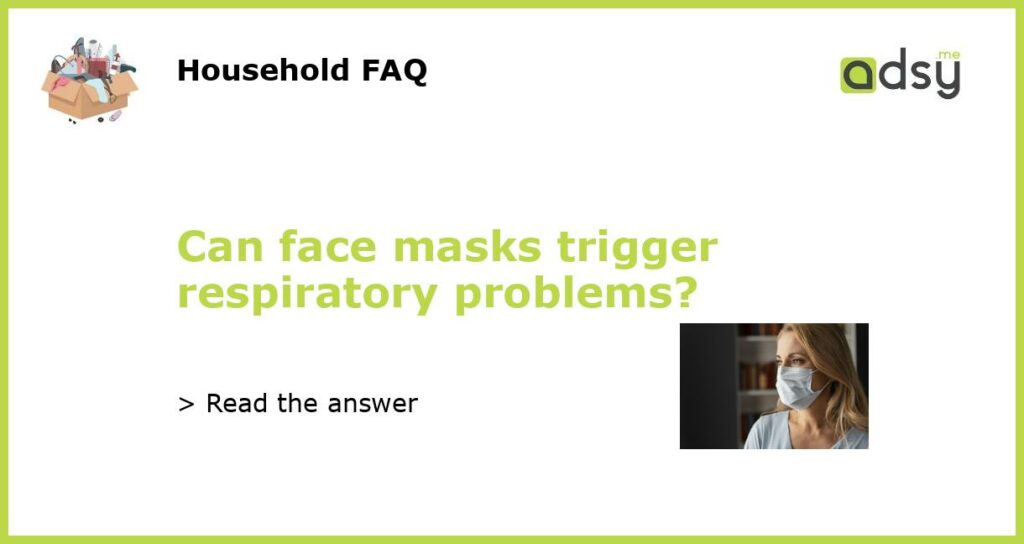Face masks and respiratory problems: Separating fact from fiction
Since the start of the COVID-19 pandemic, face masks have become a ubiquitous presence in our daily lives. However, as more people turn to face masks to stay healthy and prevent the spread of the virus, a new concern has emerged: can face masks actually trigger respiratory problems?
The truth about face masks and respiratory health
The short answer is that there is no evidence to suggest that wearing a face mask can cause respiratory problems. In fact, the opposite is true: face masks can actually help improve respiratory health by preventing the spread of respiratory illnesses like COVID-19 and influenza.
According to health experts, face masks work by trapping respiratory droplets that are released when we talk, cough, or sneeze. This helps prevent these droplets from spreading to others, reducing the risk of transmission of respiratory illnesses.
Debunking common myths about face masks
Despite the benefits of wearing a face mask, there are many common myths and misconceptions about their use, particularly when it comes to respiratory health. For example, some people believe that wearing a face mask can cause you to inhale too much carbon dioxide, leading to respiratory distress.
However, this is not the case. In fact, according to the Centers for Disease Control and Prevention (CDC), wearing a face mask does not significantly increase your carbon dioxide intake or cause respiratory distress. While it may take some time to get used to wearing a mask, most people find that it does not cause any significant respiratory problems.
Tips for wearing face masks safely and comfortably
If you are concerned about respiratory problems when wearing a face mask, there are a few things you can do to keep yourself safe and comfortable. Firstly, make sure you are choosing a mask that fits well and is comfortable to wear. Look for masks that have adjustable ear loops or ties to ensure a secure fit.
Secondly, make sure you are washing your face mask regularly to prevent the buildup of bacteria and other toxins. The CDC recommends washing your mask after each use, or at least daily, depending on how often you wear it.
Face masks are safe and effective for respiratory health
In conclusion, there is no evidence to suggest that wearing a face mask can cause respiratory problems. In fact, face masks are an effective tool for preventing the spread of respiratory illnesses and can actually help improve respiratory health. By following the tips outlined above, you can ensure that you are wearing your face mask safely and comfortably, helping to keep yourself and those around you healthy and safe.






